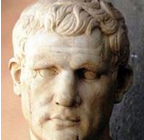This piece was reprinted by OpEd News with permission or license. It may not be reproduced in any form without permission or license from the source.
From Down With Tyranny

The fight to replace Justice Kennedy will be epic
(Image by YouTube, Channel: USA TODAY) Details DMCA
"Today's announcement that Kennedy is retiring only consummates his abdication of responsibility. Kennedy has chosen to let a deeply dangerous president and his allies steer a badly damaged ship out to sea. Is it fair to judge an eighty-one year old man so harshly? Yes, it is." --Yascha Mounk, SlateLike "swing vote" justice Sandra Day O'Connor before him, "swing vote" justice Anthony Kennedy has been one of the worst Supreme Court jurists of the modern era.
With swing-vote status comes great responsibility, and in the most consequential -- and wrongly decided -- cases of this generation, O'Connor and Kennedy were the Court's key enablers. They...
- Cast the deciding vote that made each decision possible
- Kept alive the illusion of the Court's non-partisan legitimacy
These horrible decisions are easy to list. They expanded the earlier decision on corporate personhood by enshrining money as political speech in a group of decisions that led to the infamous Citizens United case (whose majority opinion, by the way, was written by the so-called "moderate" Anthony Kennedy); repeatedly undermined the rights of citizens and workers relative to the corporations that rule and employ them; set back voting rights equality for at least a generation; and many more. After this next appointment, many fear Roe v. Wade may be reversed.
Yet the Court has managed to keep (one is tempted to say curate) its reputation as a "divided body" and not a "captured body" thanks to its so-called swing vote justices and the press's consistent and complicit portrayal of the Court as merely "divided."
Delaying the Constitutional Crisis
The second point above, about the illusion of the Court's legitimacy, is just as important as the first. If the Court were ever widely seen as acting outside the bounds of its mandate, or worse, seen as a partisan, captured organ of a powerful and dangerous political minority (which it certainly is), all of its decisions would be rejected by the people at large, and more importantly, the nation would plunged into a constitutional crisis of monumental proportions.
We are in that constitutional crisis now, but just at the start of it. We should have been done with it long ago. Both O'Connor and Kennedy are responsible for that delay.
O'Connor's greatest sin, of course, was as the swing vote in Bush v. Gore, the judicial coup that handed the 2000 election to George W. Bush and Dick Cheney. It was also widely reported that on election night at a dinner party "Sandra Day O'Connor became upset when the media initially announced that Gore had won Florida, her husband explaining that they would have to wait another four years before retiring to Arizona." (More on that here.)
Consider: If the Supreme Court were part of a coup that makes a losing presidential candidate the winner, and makes that ruling along partisan and preferential lines that can't be judicially defended, how could any decision issued by that court be deemed legitimate afterward?
Yet here we are, still publicly asserting the Court's legitimacy, whatever people think privately, and still watching in horror as decision after decision dismantles old constitutional agreements and erects new ones.
The Legacy of Anthony Kennedy
Kennedy will be praised for his so-called "moderate" or "case-by-case" ideology, bolstered largely by decisions protecting gay rights. Perhaps that will be his legacy.
But in the main he has been horrible, a record of ideological and indefensible votes capped by his landmark decision in the Citizens United case. Enough has been written about that to make repetition here unnecessary. As noted, Kennedy not only provided the crucial "swing vote," he also wrote the majority opinion, which in essence, reduced the broad and complex sweep of both public corruption and the appearance of corruption only to provable, documented, evidence-based quid pro quo exchanges. This is beyond naà �ve and touches itself the broader meaning of corrupt.
If justice exists in the world, his legacy will be this: First, in giving to Donald Trump the ability to hand a person of relative youth the fifth and deciding Republican vote on the Court, Kennedy has changed the Court for a generation. After his successor is confirmed, no good thing will come from the Court for the next 20 years, and much, perhaps fatal, damage will be done.
(Note: You can view every article as one long page if you sign up as an Advocate Member, or higher).





